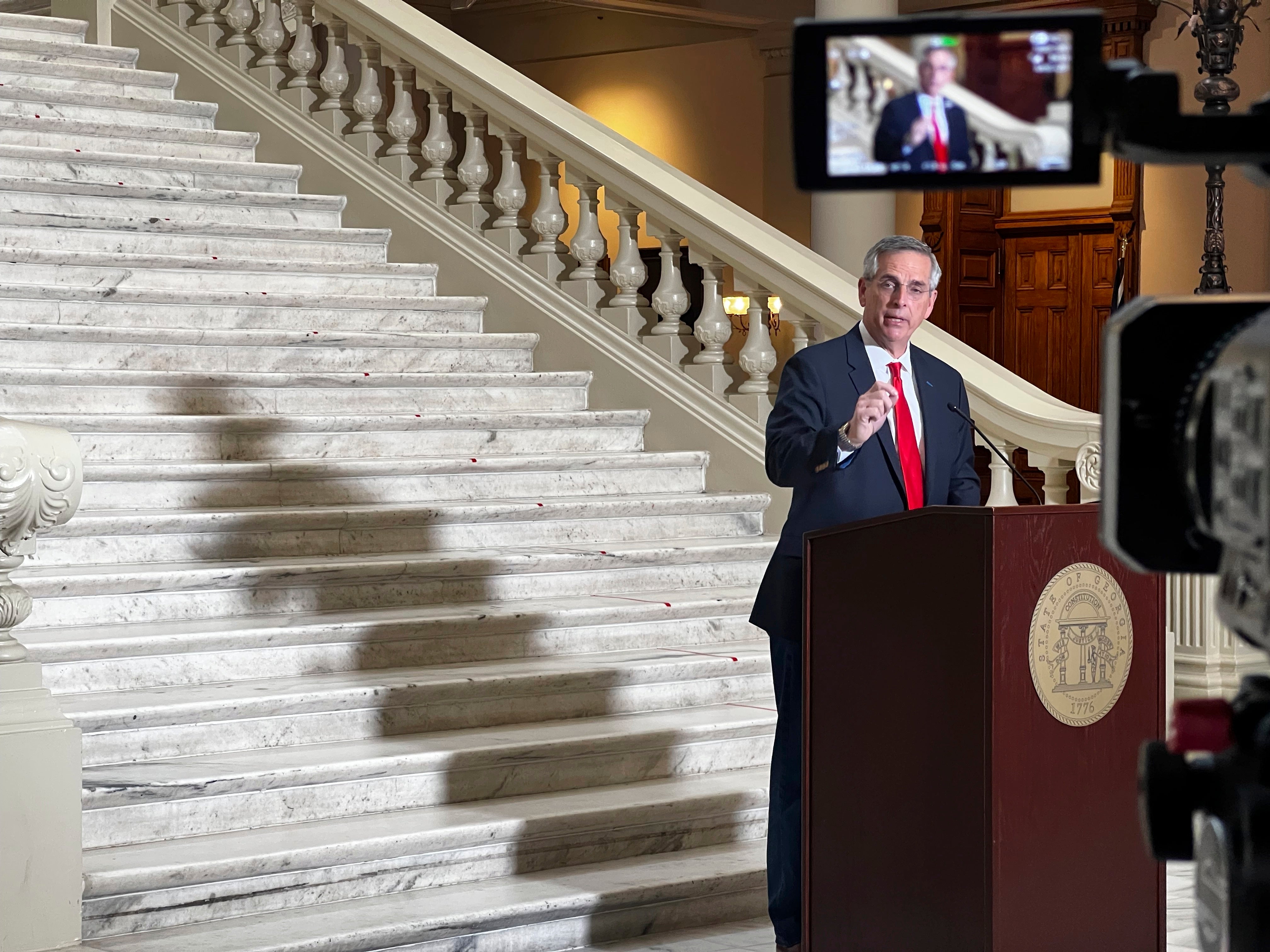Georgia secretary of state's race chosen for required audit
Georgia Secretary of State Brad Raffensperger announced Thursday that state election officials will conduct an audit of his own race to satisfy an audit requirement added to state law several years ago

Georgia Secretary of State Brad Raffensperger announced Thursday that state election officials will conduct an audit of his own race to satisfy an audit requirement in state law.
The audit stems from a law passed in 2019, not from of any concerns about any problems or the integrity of the state's election results. An audit is required for general elections in even-numbered years on a race selected by the secretary of state. It must be completed before the election results are certified.
“Today’s about ensuring confidence in the outcome of our elections in Georgia and really across our entire country,” Raffensperger said.
The counties must begin the audit on Nov. 17, and the secretary of state's office is asking them to complete it by the next day, Raffensperger said.
He said he chose the secretary of state race because it had the widest margin, which will make the audit easier for counties to carry out. Raffensperger, a Republican, beat state Democratic state House Rep. Bee Nguyen by 9.3% of the vote.
The law requires a risk-limiting audit, which checks the results recorded by vote-tallying scanners against a hand-count of a random sample of ballots. According to the statistical basis for such audits, the smaller the margin between candidates in a race, the larger the sample of ballots that must initially be audited. A risk-limiting audit does not generally require a full hand recount of all ballots cast.
Counties must post the date, time and location of the audit on the elections office website or, if that doesn't exist, in another prominent spot. While members of the public and the news media can attend the audit, no one but audit workers who have taken an oath may touch the ballots or ballot containers.
Raffensperger said he plans to work with state lawmakers and the State Election Board to raise the number of races audited in future elections “to increase the confidence in our elections,” he said.
___
Associated Press writer Sudhin Thanawala contributed reporting.